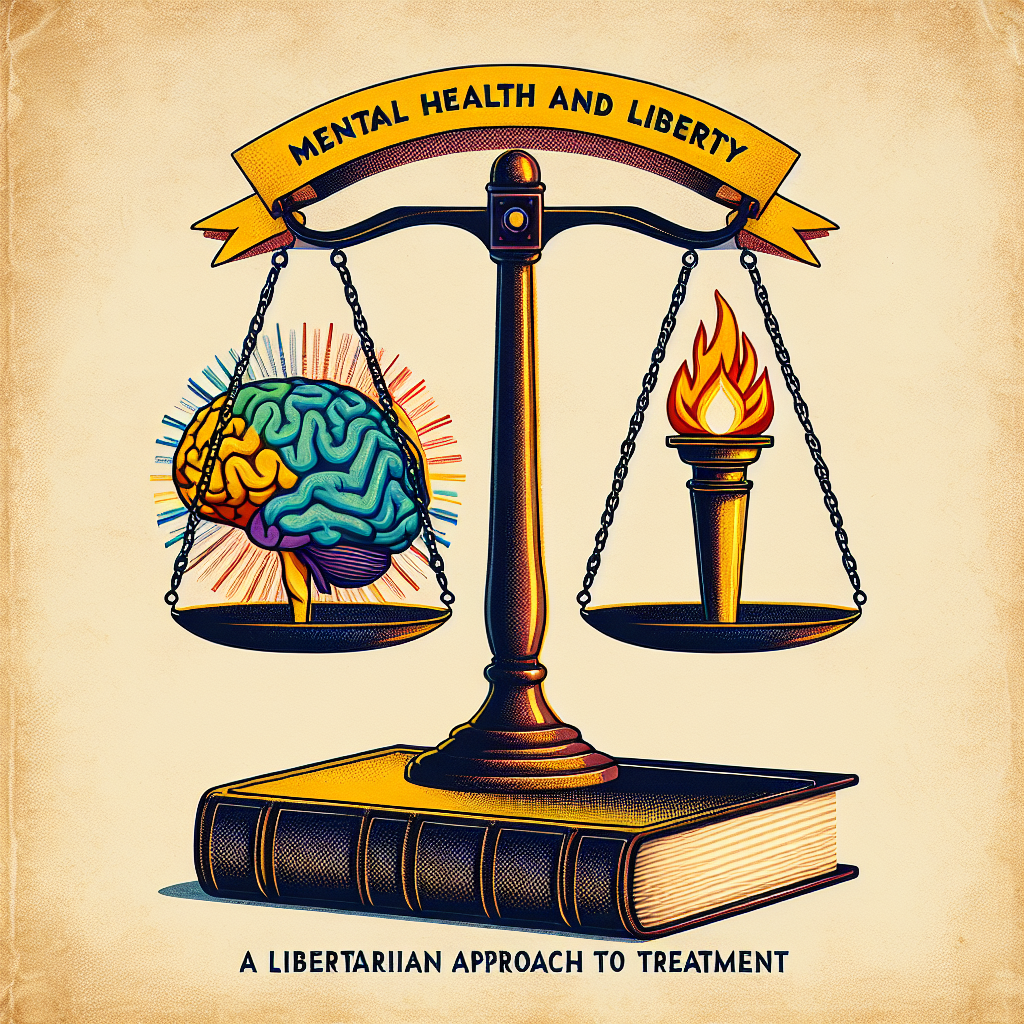Mental Health and Liberty: A Libertarian Approach to Treatment
In recent years, the dialogue surrounding mental health has gained traction globally. Individuals are increasingly acknowledging the importance of mental health, advocating for more inclusive and effective treatments. At the intersection of mental health and treatment philosophies lies a unique perspective: a libertarian approach. Let’s delve into this perspective, exploring how it emphasizes liberty while promoting effective mental health treatment.
Understanding Mental Health in Libertarian Philosophy
Libertarianism champions the idea of individual freedom and personal responsibility. This philosophy asserts that individuals should have the autonomy to make decisions affecting their lives, including their mental health treatment options. In the libertarian view, mental health is not just an individual issue but also a matter of personal liberty.
The Right to Choose
A core tenet of libertarianism is the right of individuals to choose their own paths, including healthcare options. In the context of mental health, this means that individuals should have the freedom to explore a range of treatment options—traditional therapies, alternative methods, or even self-managed care—without excessive governmental restrictions.
Empowering Patients Through Information
A libertarian approach encourages informed consent and education about mental health options. This philosophy advocates that patients should be equipped with comprehensive information about various treatment modalities, enabling them to make choices aligned with their values and circumstances. The role of mental health professionals is to provide guidance, not impose solutions.
De-stigmatizing Mental Health through Community Support
Libertarian viewpoints stress the importance of community and mutual aid without relying heavily on state intervention. This approach can be particularly beneficial in the realm of mental health.
Promoting Peer Support Networks
Libertarians advocate for community-led initiatives that foster peer support. By creating informal networks, individuals can share experiences and coping strategies, reducing stigma around mental health issues. Such community involvement can empower individuals to seek help and support each other, leading to improved outcomes.
Facilitating Alternative Treatment Options
Communities can also support alternative treatment approaches, such as art therapy, meditation, or counseling from non-traditional practitioners. This diversity allows individuals to choose pathways that resonate with them, consistent with the libertarian emphasis on personal freedom.
The Role of Technology in Mental Health Treatment
In today’s digital age, technology plays a crucial role in transforming mental health treatment. Libertarians see this as a positive development, as it enhances access to care and fosters innovation without onerous government regulation.
Telehealth Services
Teletherapy and other telehealth services provide individuals with the flexibility to choose their treatment providers, regardless of location. This approach expands access, particularly for those living in rural areas or facing mobility challenges. The increased options align with the libertarian ethos of personal choice.
Mental Health Apps and Self-Management Tools
A plethora of mental health apps empower individuals to track their moods, learn coping techniques, and access educational resources. These tools encourage self-management, reinforcing the libertarian principle that individuals can effectively navigate their mental health journeys without relying solely on conventional healthcare systems.
The Critique of Governmental Involvement in Mental Health
Libertarians often critique the government’s involvement in mental health care, arguing that it can lead to inefficiencies, a lack of innovation, and reduced quality of care.
The Case for Decentralization
By decentralizing mental health services and allowing for more community-driven models, solutions can be tailored to the specific needs of individuals. This approach encourages healthy competition and innovative practices while maintaining the patient’s freedom to choose.
Reducing Bureaucratic Barriers
Excessive bureaucratic regulations can impede access to care and limit treatment options. A libertarian approach advocates for minimizing governmental barriers, allowing therapists, counselors, and other providers the flexibility to offer varied services to meet the unique needs of their clients.
Conclusion: A Vision for the Future of Mental Health Treatment
The libertarian approach to mental health emphasizes the significance of personal freedom, informed choice, and community support. By championing these principles, society can foster a more inclusive and effective mental health care environment. As mental health continues to be prioritized, integrating these libertarian philosophies can lead to innovative treatment options and empower individuals to navigate their mental health journeys with autonomy and dignity.
In adopting a libertarian lens, we move toward a society where individuals not only have the liberty to choose their treatment but also the tools and support to achieve mental well-being effectively. The future of mental health treatment can be bright, provided we uphold the values of liberty and personal responsibility.
Share this content:












Post Comment